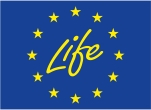On 10-11 December, EU agriculture ministers will try to reach a general agreement on the European Commission’s proposal to widely deregulate the new generation of genetically modified organisms (new GMOs, also called new genomic techniques). Under the Spanish Council presidency, ministers have largely supported the Commission’s deregulation approach. However, the majority required to green-light the compromise text was not reached during the preparatory ambassadors meeting (Coreper I) on 6 December.
The Agriculture Council intends to allow a majority of new GMOs (so-called category 1) to be imported, marketed and grown without any kind of safety checks, liability, labelling or monitoring. For the remaining new GMOs (category 2), the current GMO rules will partly apply. Friends of the Earth Europe is deeply concerned by the impacts the proposal would have on the environment, the food sector, farmers and consumers.
People, animal health and the environment exposed to untested organisms
If the Council agrees on the current version of the proposal, no safety checks and monitoring will be necessary to market the majority of new GMOs (see Articles 5,1 of the compromise text).
This means that the potential harm caused by the release of untested organisms into European fields will probably remain undetected, and people, animals and nature will have to face the risks of that exposure (read about scientists’ warnings here and here). Even if harm is detected, because the proposal abolishes company monitoring requirements for most of the new GMOs, those could still be grown and sold on the sole basis that they have already been green-lit to enter the market.
No liability for companies and farmers
If the Council agrees on the current version of the proposal, it would allow corporations and farmers to develop and use new GMOs without any liability schemes foreseen (the compromise text does not include any provisions regarding liability schemes).
This means that agrochemical giants like Bayer, Corteva and BASF could sell untested products without being held accountable if damage occurs. This is an extreme deregulation and can be seen as a risky precedent for food and environmental safety.
New GMOs kept hidden from the food sector and consumers
If the Council agrees on the current version of the proposal, only seed buyers would be informed of the presence of new GMOs (see general exemptions from GMO rules Art 5,1, seed information Art 10 – for Category 1). Austria, Croatia, Hungary and Poland are the only countries that have favoured labelling along the whole food chain during the Agriculture Working Group that took place end of November 2023. In addition, the well-established traceability system currently existing for GMOs has been removed from the proposal (see Art 5.1).
This means that authorities could not check where the gene editing occurred along the chain. It also means that the right of consumers, of farmers and of the food sector to know whether the food and feed they buy contains new GMOs will be abolished.
More corporate control and patents hinder climate-resilient crop development
When drafting its proposal, the EU Commission failed to assess the consequences of how patented new GMOs can impact the farming and breeding sector. The Council’s compromise text only specifies the need for an impact study by the end of 2026.
This means that plants developed with new genomic techniques would – in the meantime – be covered by patents, restricting farmers’ right to seeds and exposing them to legal action for patent infringement. Patents on seeds hinder innovation in plant breeding and limit the access to genetic plant material that is urgently needed for the development of climate-resilient crops. The handful of big corporations pushing hard for the deregulation of new GMOs are the same ones that have already managed to secure up to 70% of the seed market and to control seed access via patent claims on new GMOs. Globally, Corteva applied for some 1430 patents on new GMOs, while Bayer/Monsanto has applications for 119.
Mute Schimpf, food and farming campaigner at Friends of the Earth Europe said:
“Ministers are focusing on parroting the industry’s false promises instead of facing the truth: there are no new GMOs market-ready to deliver on pesticide reduction or climate-resilient farming.
What’s more, consumers across Europe have spoken against deregulation. Is the EU really going to let empty pledges and greed form the basis of EU law-making over enshrined rights?”
Friends of the Earth Europe calls on ministers to stand up for the right of consumers and farmers to transparency and information, for basic nature protection, and to reject the Spanish compromises.
Next Steps: On 11 December, the Agriculture Committee of the European Parliament will vote on the proposal, followed by a vote in the Environment Committee on 11 January 2024.

This publication is co-funded by the European Union. Views and opinions expressed are however those of the author(s) only and do not necessarily reflect those of the European Union or CINEA. Neither the European Union nor the granting authority can be held responsible for them







